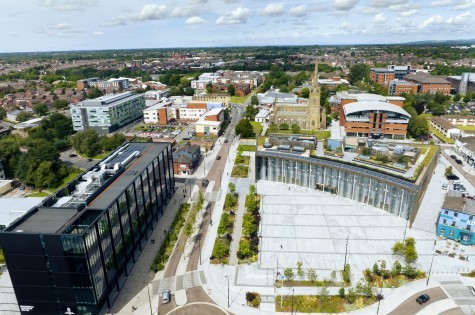Ask any business leader in Lancashire to name major obstacles to economic growth in the county and you can be sure that the transport
network will feature highly on the list.
In June the government announced a £15bn package of investment in transport infrastructure. Greater Manchester received £2.5bn. Part
of that funding will expand its tram network.
The Liverpool city region’s slice of the pie was £1.6bn. The cash will allow it to take forward plans for a new rapid transit network.
West Yorkshire was handed £2.1bn which will enable it to start work on a tram system. Other transport improvements will aim to unlock regeneration across six key neighbourhoods bordering Leeds city centre.
And what did Lancashire receive from the pot?
Absolutely nothing.
The money was shared out amongst areas that have an elected mayor in place, parts of the country that have grasped the opportunities
devolution can deliver.
Sadly, it has become an all too familiar story with Lancashire, like parts of its transport network, crawling towards that destination.
Now it looks like the brakes may once again be applied, with the new county council ruling party Reform UK calling for a binding referendum on an elected mayor.
In an interview with Lancashire Business View featured in this issue, new County Hall leader Stephen Atkinson sets out his personal
opposition to an elected mayor.
He shares his concerns that a mayoralty “could become very politicised” in terms of investment decisions and questions whether the model is
suitable for the rural nature of Lancashire.
He also believes that the people of Lancashire should make the decision saying: “It needs to be their choice”.
There is no doubt the Labour government’s preferred model is for elected mayors along with the streamlining of local government that would see many of our district councils disappear.
Deputy Prime Minister Angela Rayner spelled out the position in her speech to the Convention of the North in Preston in February.
She has also urged Lancashire to move forward at pace.
Other parts of the North West have responded quickly. Cumbria is set to elect its mayor in 2026, as is Cheshire and Warrington. That will leave Lancashire out on its own.
The debate in the county has gone on for years, much to the frustration of the business community.
For those who worry about the politics, we’d point out the relationship between Greater Manchester’s elected Labour mayor Andy Burnham and the Conservative government as an example of an approach that has put the needs of an area first.
And while the talk in Lancashire is of a referendum, in Greater Manchester it is about an ambitious ten-year plan to turbocharge growth and deliver tens of thousands of new jobs and homes for its residents.
A plan to deliver £1bn of investment every year for the next decade and build homes on a scale and at a pace not seen in the past 20 years.
How absolutely game-changing would it be for Lancashire to be in that position?
Enjoyed this? Read more from Editorial Staff




















